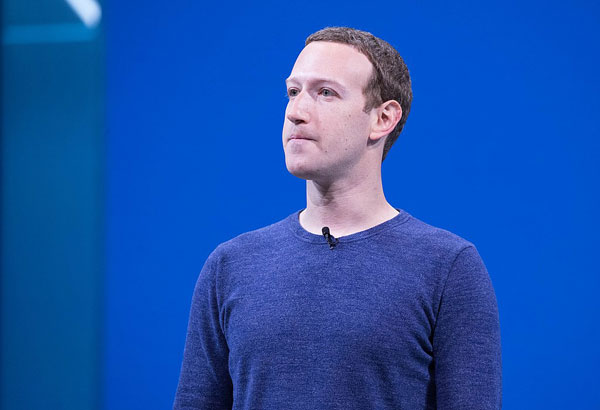
May 9, 2019; Guardian and the New York Times, “Opinion”
Demands for Mark Zuckerberg’s removal as the unquestioned ruler of three of the world’s most used internet platforms have grown over the last week following a call from Color of Change and Majority Action for stakeholders to withhold their support for Zuckerberg’s reelection to the board of directors. His sitting on and chairing the board, say the two groups in their advisory to shareholders, gives him essentially unlimited power, since he also holds a super-voting share of the stock and sits in the CEO position. In light of Facebook’s violations of public trust and individual privacy, this, they say, is unacceptable and creates escalating crises and cascading risks for shareholders—not to mention the rest of us and the very institution of democracy.
For Color of Change, the problem was acutely highlighted when the group was targeted by a Facebook-funded face-saving campaign waged against the company’s critics during the 2016 elections. “Facebook’s governance structure is a threat to the civil rights of its Black users and to the financial interests of its shareholders,” says Color of Change President Rashad Robinson.
We’re encouraged by Facebook’s recent changes that have come as a direct result of pressure from Color of Change and other civil rights groups because it shows the power of advocacy as a means to shift corporate power. Nevertheless, lasting change to address the misinformation, discrimination, violent movements and data breaches that put users, especially Black users, at risk cannot be subject to the whims of a single person. Our 1.5 million members, in partnership with Majority Action, are taking our campaign to Facebook’s institutional investors because shareholder value is threatened by the company’s failure to make fixing civil rights violations an operational priority.
Zuckerberg’s Facebook co-founder Chris Hughes agrees. His essay, published yesterday to be printed in Sunday’s New York Times, calls out Zuckerberg’s “unilateral control over speech.”
“There is no precedent for his ability to monitor, organize and even censor the conversations of 2 billion people,” writes Hughes.
Mark’s influence is staggering, far beyond that of anyone else in the private sector or in government. He controls three core communications platforms—Facebook, Instagram, and WhatsApp—that billions of people use every day. Facebook’s board works more like an advisory committee than an overseer, because Mark controls around 60 percent of voting shares. Mark alone can decide how to configure Facebook’s algorithms to determine what people see in their News Feeds, what privacy settings they can use, and even which messages get delivered. He sets the rules for how to distinguish violent and incendiary speech from the merely offensive, and he can choose to shut down a competitor by acquiring, blocking or copying it.
Sign up for our free newsletters
Subscribe to NPQ's newsletters to have our top stories delivered directly to your inbox.
By signing up, you agree to our privacy policy and terms of use, and to receive messages from NPQ and our partners.
[…]
We are a nation with a tradition of reining in monopolies, no matter how well intentioned the leaders of these companies may be. Mark’s power is unprecedented and un-American. It is time to break up Facebook.
Hughes concludes, “Mark Zuckerberg cannot fix Facebook, but our government can.” He advocates to the FTC, Justice Department, and Congress that Zuckerberg’s unilateral power be broken up by breaking up the composite companies, blocking future acquisitions, and establishing a new agency to force tech companies to be more accountable. This is, of course, in line with the platform proposal voiced by Democratic presidential candidate and Massachusetts senator Elizabeth Warren back on March 8th.
In an op-ed for the Guardian a few days ago, Evan Greer of Fight for the Future also called for Zuckerberg’s ouster, writing that “Facebook’s current business model is fundamentally at odds with democracy and basic human rights.” She enumerated 25 reasons for removal, among them violations of user privacy, psychological experimentation via the algorithm, unsavory relationships with advertisers (including allowing them to target using unlawful, biased, or racist search criteria), and affiliation with amoral data manipulators like Cambridge Analytica whose impact on our relationship to journalism—and even truth itself—is still not completely understood.
Enough is enough. Mark Zuckerberg must go. For the longest time we’ve accepted as scripture that Silicon Valley founders had a divine right to lead the most powerful companies ever created. We need to burst this cultish idea. Shareholders realize the problem is at the top. They’re lining up to Vote “No on Zuckerberg” at the upcoming AGM. However, Zuckerberg has structured the company so that he has more voting power than all other shareholders combined. It’s clear we need more than shareholders to make this happen. We need an internet-wide vote of no confidence. Zuckerberg’s resignation would send a message to tech workers, government regulators, advocates, and all who hold Silicon Valley accountable that leadership at these companies is a privilege, not a right.
Fight for the Future is currently circulating a petition that demands Zuckerberg’s resignation.—Ruth McCambridge and Jason Schneiderman












